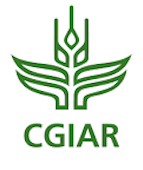Eddie Allison received his PhD in Fisheries Science from the University of Liverpool, UK, working with the Isle of Man’s scallop fishing fleet. After graduating, he worked for the UK Department for International Development in Malawi for four years. For most of his career since, he has combined university-based teaching and reearch with secondments and consultancies to various international organizations, including the Global Environmental Facility International Waters program in Lake Tanganyika in the late 1990s, and the UN Food and Agriculture Organization, where he worked on the Sustainable Fisheries Livelihoods Program in West and Central Africa in the early 2000s.
His research centers on the human connection to natural resources. His primary areas of focus are 1) the contribution of fisheries and aquaculture to food and nutrition security and coastal livelihoods, 2) governance of small-scale fisheries and aquaculture production and the human rights of fishers, and 3) the vulnerability and adaptation to climate change of people dependent on marine and freshwater resources.
His work spans the globe, having held positions in the field of fisheries and aquaculture management and development in sub-Saharan Africa, Asia, Oceania, Latin America and Europe, as researcher or technical and policy advisor for various international organizations. He has held faculty appointments at the University of East Anglia, UK, and was the director of Policy, Economics, and Social Science at the WorldFish Center in Malaysia from 2007 to 2010. He has been at the School of Marine and Environmental Affairs at the University of Washington since 2013.
From 2012 to 2014 he worked with a legal team to support the claims of the Bodo Communities in the Niger Delta for compensation for oil spills that had destroyed their fishing grounds. Eddie characterizes himself as an interdisciplinary scholar and works in close collaboration with other academics (anthropologists, sociologists, geographers, economists, ecologists and others) as well as fisherfolk and resource stewards in communities, governments and firms.
- Penang, Malaysia
- Website
- @EddieAllison_
- Article Feed
- Joined


